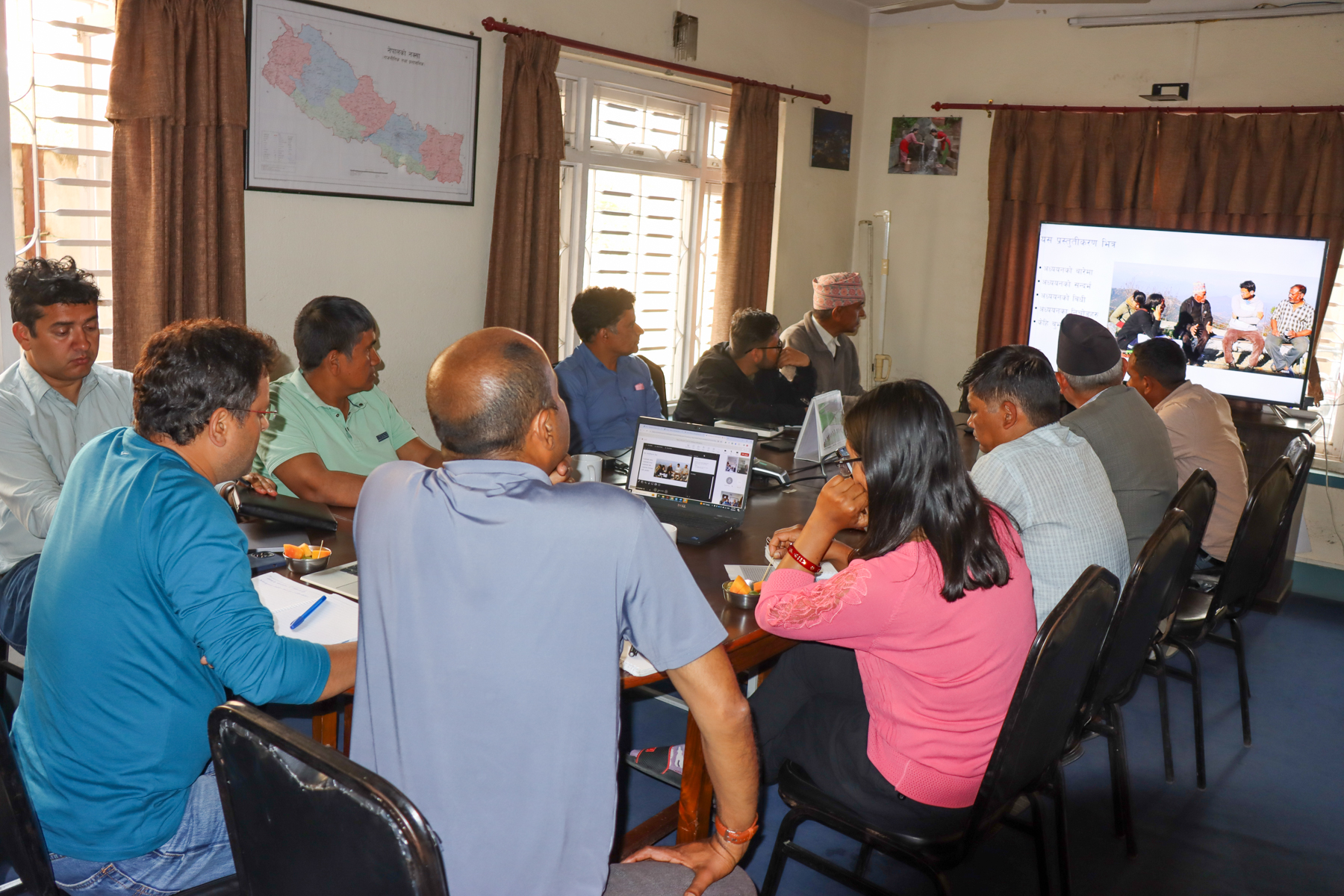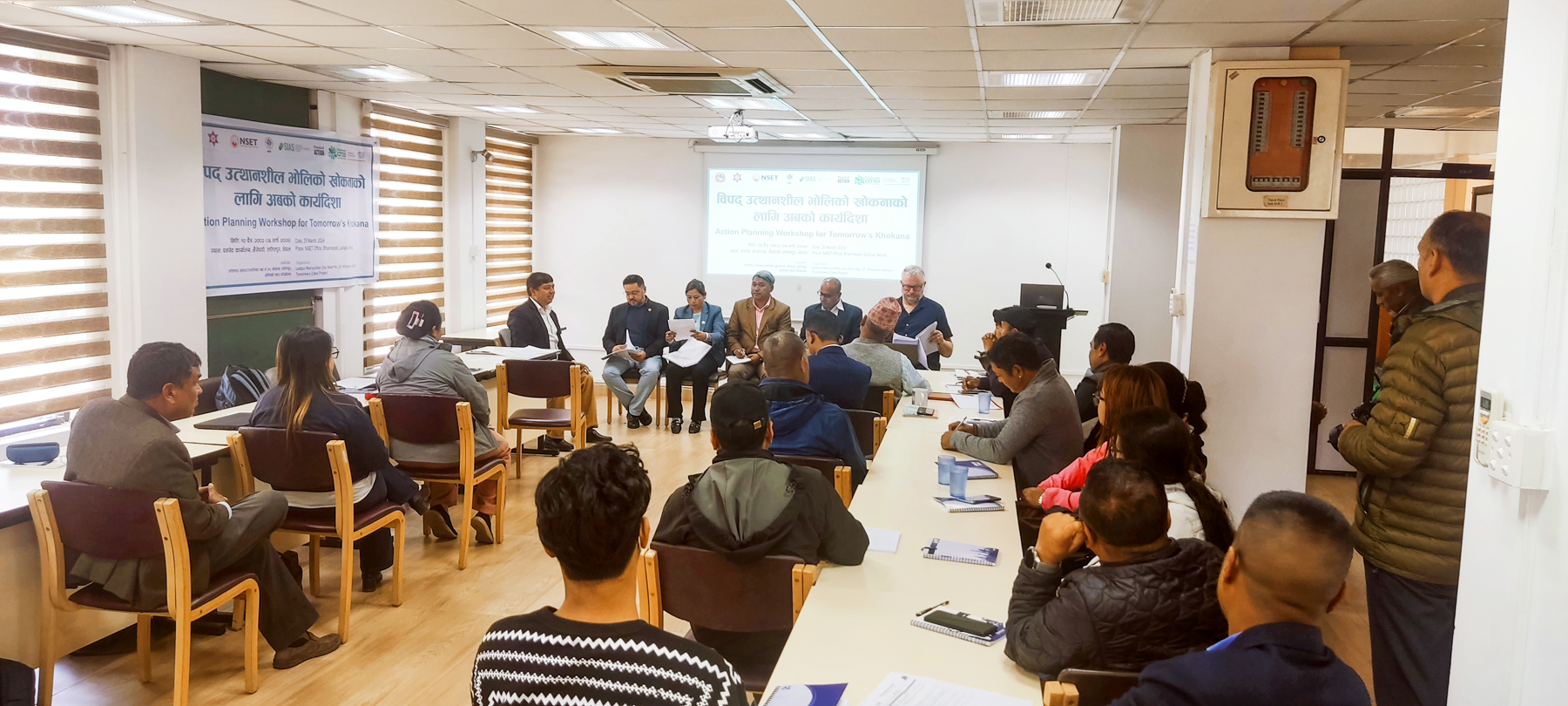In collaboration with the University of Edinburgh (UoE), UK Research and Innovation (UKRI), and Global Challenge Research Fund (GCRF) under the Tomorrow’s Cities- Kathmandu project, Southasia Institute of Advanced Studies (SIAS) organized a half-day workshop on “Co-producing Knowledge on DRR policies and practices: Lessons from Action research” on March 29, 2022 at Indreni Complex, New Baneshwor. A total of 14 experts (6 females) representing Nepal Red Cross Society (NRCS), DP-Net Nepal, Institute of Engineering (IoE), Central Department of Geography of Tribhuvan University, National Society for Earthquake Technology – Nepal (NSET), Oxford Policy Management (OPM), National Disaster Risk Reduction Centre (NDRC), NGO Federation, Oxfam, Practical Action, USAID Tayar Nepal, Youth Innovation Lab along with two Nepali PhD students from UoE and University of Bristol, were present at the workshop. With 6 researchers (2 females) from SIAS, Dr. Mani Ram Banjade, a senior research fellow from SIAS, kicked off the session with the welcome and introduction of the workshop
To initiate the discussion about the insights generated so far on Disaster Risk Reduction (DRR) practice and policies and challenges of DRR governance, two presentations were first delivered by the experts from SIAS and DP-NET, respectively. Dr. Dilli P. Poudel from SIAS on his presentation shed light on the policy and practice gaps in urban DRR experienced at multiple scales in Nepal in general and in Kathmandu in particular and proposed the notion of Co-production as a potential epistemological/ methodological solution in (1) designing resilient, inclusive and equitable policy and development plans at the community level and (2) completing “incomplete” disaster governance in Nepal. For this, he shared the experiences and learnings of SIAS’s ongoing co-production research in Khokana since last three years under the Tomorrow’s Cities project. Similarly, Dr. Raju Thapa from DP-Net, particularly focusing on the reflections of recently organized National workshop on DRR (NCDRR), shared the overall activities of DP-Net, working on DRR from planning to implementation with wider stakeholders including the government, and the lessons/learnings and knowledge sharing even through the virtual platforms and online resource centres.
During the discussion session moderated by Dr. Netra P. Timsina – chair of SIAS, each participant was provided the platform to share her/his personal views as well as organization’s learnings,the implications and challenges of DRR implementation. Mr. Shyam Jnavaly, from NDRC, remarked that the understanding of DRR is very low in the global as well as national practice which is the number one priority of the Sendai Framework of DRR. Mr. Hari Mohan Shrestha from NRCS stated that challenges of DRR policy implementation are different at the micro and macro level and have to deal with accordingly. Dr. Dinanath Bhandari from OPM shared that the major problem is all the DRR actors are project-oriented and donor-driven. Lack of coordination among the DRR organizations and/or projects and lack of neutrality in co-production/ co-creation of knowledge is also the major problem. Added is the political economy that hinders the dissemination of true knowledge. Mr. Prakash Kafle from Oxfam stressed on the abundance of policies but lacked coveted implementation at the ground/community level.
Dr. Banjade in his concluding remarks conveyed that co-production with the civic society often leads to a win-win situation for all as it helps in bridging the science, the (local) knowledge, and other knowledge systems. Finally, the workshop ended with Dr. Timsina proposing the need of a more deliberative and informal knowledge-sharing platform in DRR that can be used for de-learning among the actors without any professional glitches and hindrances and for the wider dissemination of knowledge and practices, both success and failures.




